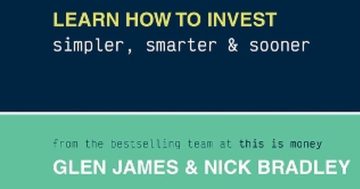Peter Switzer* unveils his golden rules of investing in the share market.
 Recently a young investor asked me how I invest in the share market so I decided to think about some of the core considerations when I decide to buy a stock.
Recently a young investor asked me how I invest in the share market so I decided to think about some of the core considerations when I decide to buy a stock.
In many ways, the same issues are relevant if I’m buying a property or thinking about any investment.
These are questions I ask myself and they become filters by which I decide if the investment opportunity will be a goer.
Every week I write a story for my Switzer Report where I look for a good value company or a group of companies.
Generally, they have to pass most of these Switzer seven investing principles.
1. First up, I buy great quality companies/stocks/assets that will grow in value over time.
I want to be able to receive income while I’m waiting for the uplift in the value of the asset I’ve invested in.
2. Second, I invest for the long term because that often can create buying opportunities.
For example, the CBA recently went under $60 a share so I bought these shares on the idea that if the share price went to $80 in say three years’ time, I’d make $20 on a $60 outlay, which is 33 per cent or 11 per cent a year!
And the CBA pays a dividend better than 5 per cent, so that would possibly be 16 per cent a year by betting on the best bank in Australia where our top four banks are often in the top 50 of the world.
As history has shown, CBA’s share price hit $80 well ahead of my prediction.
3. Third, sometimes I buy lesser quality companies that might be new to the stock market or in the tech space or might be in an industry with a real future, such as electric vehicles.
These investments are called ‘satellite’ stocks.
These are more risky companies compared to my core investments, which might be 80 per cent or more of my stocks portfolio.
These ‘satellite’ stocks can give you alpha or big returns but they are more risky.
4. Fourth, I look for opportunities to buy quality assets when markets are over-negative.
The great investor Warren Buffett advised us “to be fearful when others are greedy and be greedy when others are fearful.”
It’s why I was a buyer of stocks when our stock market crashed nearly 37 per cent in early 2020 because of the coronavirus.
5. Fifth, I “stand on the shoulders of giants”.
I do that by having experts in my life, either directly by knowing them or ‘virtually’ by reading, listening to or viewing them wherever they might be communicating.
When I buy stocks, I build up a case for the stock and then check out my charts experts to see if the charts are positive about the company.
I then go and see what expert analysts say about the company.
If the stars align, I invest.
6. Sixth, I’m a diversified investor.
I’m in stocks, property and other capital-gaining assets.
And when it comes to stocks, I hold 15- to 20 stocks to make sure I’m not too exposed to a silly CEO or a dumb government decision that could KO my investment.
7. The important seventh principle is that I have to have the courage to kill an investment if it doesn’t work out.
Obviously, I do my objective homework to see if a failed investment has potential, but if I play stubborn because I fear a losing stock will become a winner, then I could end up losing a whole lot more.
There are other important lessons to investing successfully but these are some core ones you should always consider when you put your hard-earned money into any investment, let alone the scary world of stocks!
*Peter Switzer is one of Australia’s leading business and financial commentators, launching his own business more than 25 years ago.
This article first appeared at au.finance.yahoo.com.











